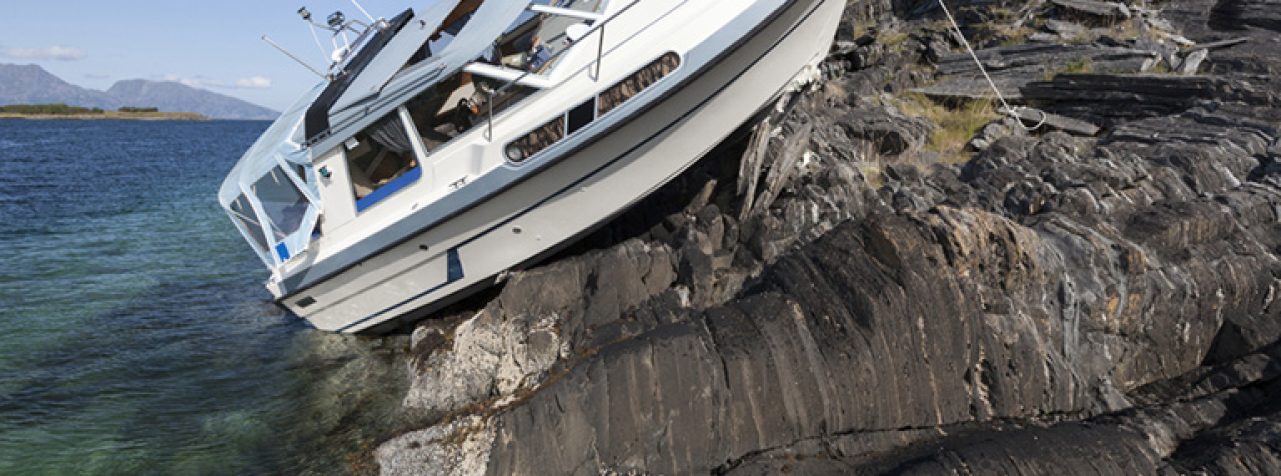Florida has more registered boats than any other state, with over 1 million vessels on the water. From jet skis to luxury yachts, boating is a way of life in places like Miami, Fort Lauderdale, and the Florida Keys. But with so many boats on the water, accidents happen frequently—and they can be just as devastating as car crashes.
If you’ve been injured in a boating accident, you may be wondering whether you can take legal action. Maritime law is different from standard personal injury law, and many people are unfamiliar with their rights when an injury occurs at sea. This guide will break down what maritime negligence is, who can be held responsible, and what damages you may be entitled to recover.
What is Maritime Negligence?
Maritime negligence occurs when someone operating a boat, jet ski, or other vessel acts carelessly and causes harm to others. Just like drivers on the road, boat operators have a duty to navigate safely and follow the rules of the water. When they fail to do so, accidents happen.
Common examples of maritime negligence include:
- Boating under the influence (BUI) – Operating a vessel while intoxicated is illegal and a major cause of boating accidents.
- Speeding or reckless driving – Excessive speed, sharp turns, or ignoring boating traffic rules can lead to collisions.
- Operator inexperience – Many boating accidents involve operators who don’t have proper training or licenses.
- Failure to maintain the vessel – Mechanical failures due to poor maintenance can put passengers at risk.
- Ignoring weather conditions – Boating in poor weather, rough seas, or heavy winds can lead to capsizing or crashes.
If an accident was caused by any of these factors, the boat owner, operator, or another party could be held liable for your injuries.
Who Can Be Held Liable in a Boating Accident?
Determining liability in a boating accident can be complex because multiple parties may be responsible. Here are some of the common liable parties in maritime negligence cases:
1. The Boat Operator
If a boat driver was reckless, intoxicated, or distracted, they may be held responsible for any injuries caused by their actions.
2. The Boat Owner
If the boat was improperly maintained or had mechanical defects, the owner could be held liable—even if they weren’t driving at the time of the accident.
3. The Boat Manufacturer
If a boating accident was caused by a defective part or design flaw, the company that made or sold the boat could be held accountable.
4. Rental Companies
Many people rent boats while on vacation, but if a rental company failed to provide proper safety equipment or rented a boat to someone without a valid boating license, they could be liable for injuries.
5. Other Boaters
Sometimes, another boat collides with your vessel due to negligent driving or failure to follow navigation rules. In this case, the operator of the other boat may be responsible.
Passengers and Crew Members Have Different Legal Rights
Maritime law treats passengers and crew members differently when it comes to injury claims.
- Passengers: If you were injured as a passenger on a boat—whether it was a private vessel, a rental boat, or a cruise ship—you can typically file a personal injury claim just as you would in a car accident case.
- Crew Members: If you were working on a boat at the time of your injury, the Jones Act may allow you to seek compensation for lost wages, medical expenses, and pain and suffering. Unlike traditional workers’ compensation, the Jones Act requires proving that the employer or vessel owner was negligent.
What Damages Can You Recover After a Boating Accident?
If you were injured due to someone else’s negligence, you may be entitled to financial compensation for:
- Medical expenses (current and future treatment)
- Lost wages (if your injury prevents you from working)
- Pain and suffering
- Property damage (if your personal belongings were lost or destroyed)
The amount of compensation depends on the severity of the injury and the level of negligence involved.
Steps to Take After a Boating Accident
If you’ve been injured in a boating accident, taking the right steps can strengthen your claim:
- Seek medical attention immediately – Even if injuries seem minor, they could worsen over time.
- Report the accident – Contact the U.S. Coast Guard or local law enforcement. A formal report will serve as evidence.
- Gather evidence – Take photos of the accident scene, the boat, and any visible injuries.
- Collect witness statements – Get the names and contact details of anyone who saw what happened.
- Avoid giving recorded statements to insurance companies – Insurance adjusters may try to minimize your claim.
- Understand your rights under maritime law – Boating accident cases are different from car accident cases, so it’s important to understand which laws apply to your situation.
Boating Safety Tips to Prevent Accidents
While legal action can help victims recover damages, the best way to stay safe is to prevent accidents in the first place. Here are a few essential boating safety tips:
- Wear a life jacket – Florida law requires boats to have life jackets on board, but wearing one at all times can save lives.
- Check the weather forecast – Avoid boating in rough conditions.
- Take a boating safety course – Inexperienced operators are a leading cause of accidents.
- Never drink and drive – Alcohol is a factor in over 20% of fatal boating accidents.
- Follow navigation rules – Just like roadways, waterways have traffic rules that must be followed.
Final Thoughts
Boating accidents can lead to serious injuries, lost wages, and overwhelming medical bills. If you were hurt due to someone else’s negligence, you may have a right to compensation. Understanding maritime law and taking the proper steps after an accident can make all the difference in holding the responsible party accountable.
